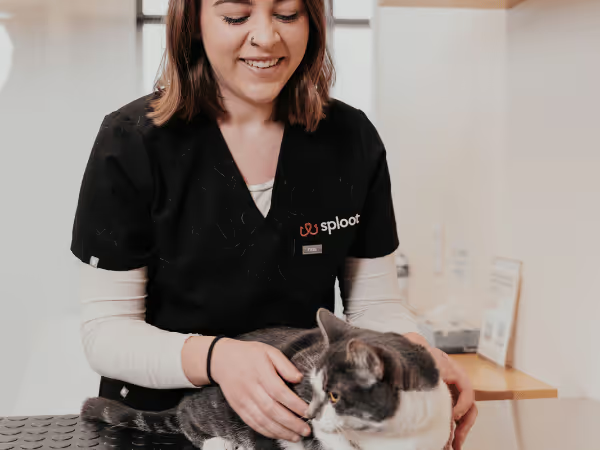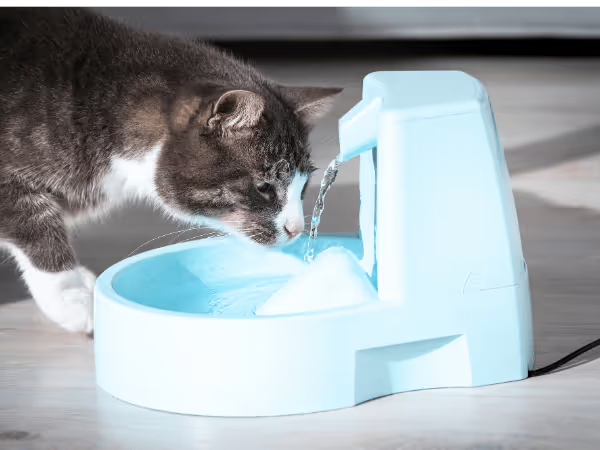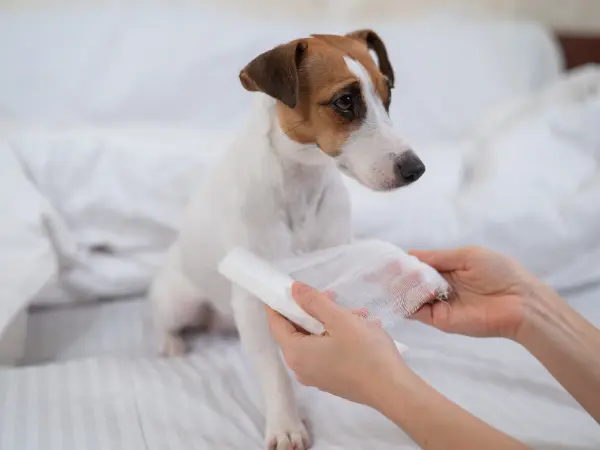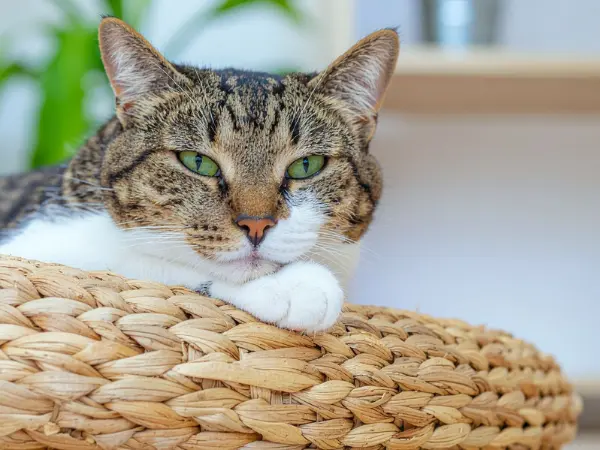Dehydration in cats is a serious condition that can develop quickly and quietly. Because cats are naturally adept at hiding signs of cat pain or illness, it’s often difficult for pet owners to detect early signs of fluid loss. Their stoic nature means that signs of dehydration in cats can be subtle and at risk of going unnoticed until it becomes severe.
Whether you’d like to be prepared or do a quick check on your cat, this Sploot Vets guide is here to help!
Which Cats Are at Risk of Dehydration or Poor Hydration?
The following have a higher risk of dehydration in cats, highlighting the importance of awareness in pet parents:
- Kittens and senior cats
- Cats that only eat dry cat food
- Cats with a low thirst drive
- Cats that have limited access to water
- Cats exposed to prolonged warm environments (i.e., during summer)
- Cats with underlying health issues (kidney disease, diabetes, or hyperthyroidism)
- Cats on medications that are diuretics (i.e., meds for heart failure and edema)
- Cats dealing with vomiting or diarrhea, especially if prolonged
- Cats recovering from any kind of surgery
Early Signs of Dehydration in Cats
The following symptoms are indicative of early or mild dehydration in cats:
- Lethargy or low energy
- Mild lethargy or less interest in playing
- Decreased urination or very concentrated urine
- Constipation and difficulty with bowel movements
- Slightly dry or tacky gums
Symptoms of Severe Dehydration in Cats
Dehydration in cats can quickly escalate, especially if they refuse to drink water. Here are signs that a cat is experiencing severe dehydration, which requires urgent or emergency veterinary care.
- Refusal to eat or drink
- Panting or labored breathing
- Extreme lethargy or collapse
- Skin stays tented and doesn't return to its place
- Gums are very dry, pale, or sticky
- Rapid or weak pulse
- Cold paws or limbs (poor circulation)
Note: Struggling with severe symptoms? Sploot Vets is a trusted provider of urgent care and emergency vet services in Denver, Colorado Springs, & Chicago, with extended vet clinic hours (8 AM to 8 PM). Call our team for the next steps→
How To Treat Dehydration In Cats At Home
Some cases of dehydration in cats can still be treated at home. However, since cats with dehydration may refuse food and water, it is not always possible to treat this issue at home. Here are a few things you can try if your cat has mild or early signs of cat dehydration:
- Call a veterinarian – It’s recommended to discuss your cat’s symptoms (no matter how mild it may seem) with a trusted vet; they can guide you through first aid tips.
- Encourage drinking – You can try encouraging your cat to drink by providing multiple sources of fresh water and/or a water fountain.
- Prepare a low-sodium broth – If your cat refuses water, you can try offering low-sodium broth; some cats would be enticed to drink it due to its flavor. If this doesn’t work, try mixing the broth with their food.
- Move your cat to a cool, comfortable place – This is especially helpful if the cause of their dehydration is the warm weather.
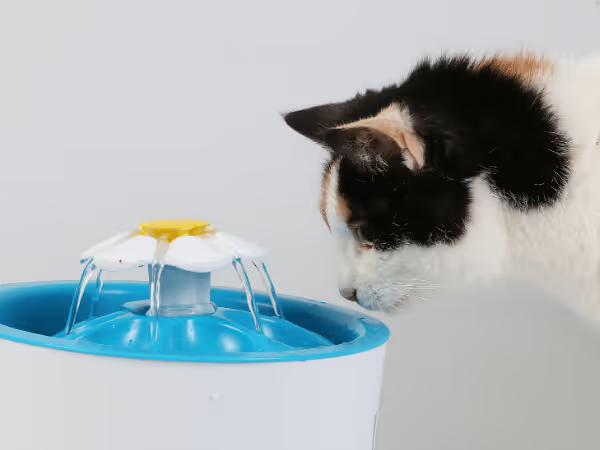
When to Seek Urgent Vet Care for Cat Dehydration
We highly recommend bringing your cat to an urgent care veterinarian or emergency vet if they are
- Refusing water and food
- Straining to poop or not pooping at all
- Experiencing worsening symptoms
- Experiencing severe signs of dehydration in cats (e.g., extreme lethargy, panting, collapse, loss of consciousness)
When you bring your cat to an urgent or emergency care veterinarian, the vets will act quickly to stabilize their condition. They will likely administer fluids (either intravenously or subcutaneously) to quickly restore hydration and correct electrolyte imbalances.
Vets might also request a few veterinary diagnostic tests to assess your cat’s overall health and rule out any other health conditions that may be contributing to your cat’s symptoms.
Note: Need help? Sploot Vets is a provider of urgent care and emergency vet services in Denver, Colorado Springs, & Chicago with extended clinic hours (8 AM to 8 PM). Call us for next steps→
Final Thoughts on Dehydration in Cats
Preventing dehydration in cats is always better than treating it after symptoms appear. Keeping your cat well-hydrated supports overall health and helps avoid dehydration as well as serious complications from fluid loss.
Ensure your cat always has access to fresh, clean water; consider using a pet fountain to encourage your cat to drink. Include wet cat food or moisture-rich food in their diet to naturally boost fluid intake. Finally, monitor your cat’s behavior, cat poop consistency, and litter box habits regularly to catch any early signs of dehydration in cats.
Sploot Vets: Urgent Care & Emergency Vet Services for Cats
Need an urgent or emergency vet visit? Sploot Veterinary Care is here for you, with availability 365 days a year for extended hours (8 AM to 8 PM).
Our vet clinics in Chicago, Denver, and Colorado Springs offer next-level, all-in-one vet care, encompassing primary care, urgent care, and emergency vet services.
Receive top-tier care from our experienced veterinarians and modern clinics, featuring spacious exam rooms, in-house diagnostics, and dedicated surgical suites. We handle more than 95% of your pet’s healthcare needs, with rates up to 60% lower than those of 24/7 vet ERs.
Easily arrange an urgent care or emergency vet appointment at Sploot by calling us at (720) 770-8656.
